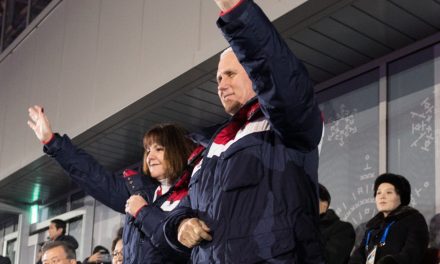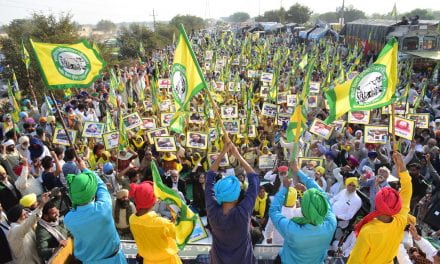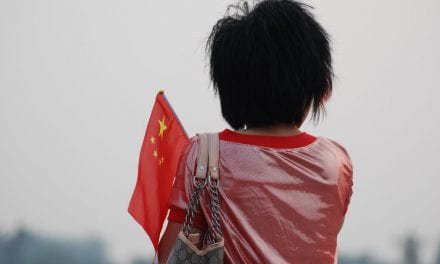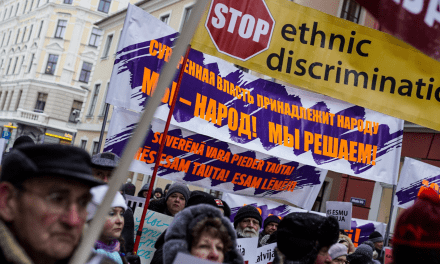By: Ed Lopez-Perez*
Sixtus Leung and Yau Wai-ching will need to find new jobs. The young lawmakers have Hong Kong’s High Court to thank, which on November 15 ruled that their oaths of swearing-in – seasoned with a healthy dose of inflammatory separatist rhetoric – were illegal, preventing them from ever taking office in the city’s Legislative Council (commonly known as Legco). However, the High Court’s role in this affair is more akin to that of a puppet in a Jim Henson production; a furious China is responsible for the ousting of the pro-independence legislators. Although Mr. Leung and Ms. Wai-ching’s remarks are widely seen as offensive in Hong Kong, citizens of the autonomous territory are more concerned with China’s influence in their judicial system, which many lawyers interpret as wounding to Hong Kong’s judicial independence. The population’s concern is rightfully placed, especially considering the increasingly contentious relationship between Hong Kong and mainland China in recent years. While China is unquestionably in control, its continued violation of Hong Kong’s autonomy will only exacerbate the very dissent which could lead to Hong Kong’s separation from the mainland and, even worse, spread to mainland China and threaten the stability of its one-party state.[1] [2]
Hongkongers’ dissent stems from anti-China sentiment which encompasses feelings toward mainland Chinese citizens as well as the Chinese government. Although a widening cultural separation between Hongkongers and mainlanders threatens China’s goal of an assimilated, distinctly Chinese Hong Kong, greater dangers impend. Brazen Chinese intervention in Hong Kong affairs has crippled the legitimacy of the “one country, two systems,” arrangement and led many Hongkongers to fear for the integrity of their economic success and overall way of life; the movement for democracy appears to be expanding. Although Hong Kong’s role has diminished in recent years as cities such as Shenzhen and Beijing have grown dramatically, it remains a critical financial resource for China. Hong Kong is unique because, unlike any other Chinese city, it offers foreign investors a stable environment protected by strong rule of law; Hong Kong accounted for 66% of foreign direct investment into China in 2013.[3] China finds itself in a difficult position. Chinese President Xi Jinping has made aggressive efforts to silence dissent in the face of rising discontent, but his strategy has begun to falter even in tightly sealed mainland China. In Hong Kong, where citizens already enjoy a high standard of life afforded by the rule of law, freedom of speech and other liberties, and a thriving capitalist economy, Mr. Jinping might find it harder to silence the calls for democracy.
To fully grasp the dynamics, a brief history of Hong Kong is helpful. Britain acquired Hong Kong, then a barren island, as a result of their victory against China in the First Opium War (1839-1842). Hong Kong’s population grew steadily, but it remained a sleepy settlement until 1941, when resistance from Britain, including a few allies and Hong Kong volunteers, failed to hold back Japanese conquest. After three years of Japanese rule, Britain returned to find a weak, depopulated colony. Luckily, the victory of the Chinese Communist Party (CCP) in mainland China in 1949 caused more than a million Chinese to flock to Hong Kong, miraculously bringing the island’s population to more than double its population before Japanese takeover.[4]
Now imbued with peasants to provide cheap labor, along with skilled businessmen and financiers, the foundation for Hong Kong’s unfettered growth was set. Picking up the pieces left in Mao Zedong’s wake, Deng Xiaoping led China away from isolationism and opened its doors, prompting the lifting of a damaging UN sanction in 1971 and enabling unprecedented growth in Hong Kong. In the 1980s, the end of Britain’s 99-year lease was closing in, and China insisted that Hong Kong be returned. To ease concerns in Hong Kong, Xiaoping crafted the “one country, two systems,” rule in 1984, by which China would leave Hong Kong intact, including its capitalist system and currency. China would conduct Hong Kong’s foreign affairs and take charge of defense, but Hong Kong was promised to have its own legislative body. Britain handed Hong Kong over to China in 1997 and designated a special administrative region (SAR). The “one country, two systems” agreement dissolves in 2047, at which point China expects to resume full control of Hong Kong. Due to this separate yet interdependent relationship with China, Hongkongers have enjoyed economic success and much higher standards of living than their mainland counterparts. Threats to this way of life are the origin of anti-China sentiment that Beijing fears so much, and they’ve only gotten worse.[5] [6]
Anti-China sentiment in Hong Kong was high preceding the 1997 handover. Hongkongers, along with highly influential American news outlets The New York Times and The Washington Post, were worried that Chinese control would strip Hong Kong of its autonomy and the individual liberties of its citizens. In contrast, the business communities in America, Japan, and Europe all expressed extreme confidence in Hong Kong.[7] After the handover transpired and Chinese control did not have the cataclysmic results which the American press predicted, anti-China sentiments largely died down. Then followed China’s effort to integrate with Hong Kong; this process reduced anti-China sentiment in Hong Kong while simultaneously sowing the seeds for future discontent. Economic aid from China helped stimulate Hong Kong’s economy while increasing Hong Kong’s dependence on China. But a loosening of restrictions for mainland Chinese traveling to Hong Kong in 2003 had less positive effects. Each year from 2003-2014, the number of Chinese visitors to Hong Kong increased by an average of 75% — 2003 to 2004 saw an increase of 548% while 2011 to 2012 saw an increase of 90%. Chinese visitors in Hong Kong drove up the prices of housing, forced local businesses to shut down, emptied shelves of milk powder in the face of a safety scandal in China, and overcrowded hospitals to the degree that there wasn’t enough space for Hong Kong mothers to give birth.[8]
Hongkongers already felt a degree of cultural separation from their Chinese counterparts; hongkongers enjoyed much more economic success, a higher standard of living, and a more Westernized lifestyle. Moreover, Hongkongers perceive mainland Chinese as crass and less socially refined. Over the years since the handover, the negative economic and social effects of the influx in Chinese visitors exacerbated the cultural separation and prejudice towards mainland Chinese. Anti-China sentiment in Hong Kong has been revived, but it now includes actual Chinese citizens instead of just the Chinese government. [9]
Beijing’s intervention does not stop at loosened travel restrictions. In 2003, a controversial security law which would have criminalized criticism of the CCP in Hong Kong was introduced from Beijing. In response to massive protests, the law was not adopted. In 2010 a “national education” curriculum was introduced, which encouraged students to identify with China and be supportive of the CCP. Again, this prompted mass protests and outrage, which led the Hong Kong authorities to concede that schools would be able to choose if they wanted to use the curriculum. All the Chief Executives (C.E.), Hong Kong’s leaders-in-effect, have been selected by a 1,200-member committee stacked with pro-Beijing members and each one has been very unpopular.[10] election of the current C.E. in 2012, C.Y. Leung, was particularly controversial since he was suspected to have underground ties to China and his actions have shown that he is more than eager to appease Beijing. In 2014, China announced that it would not permit open nominations for the post of Hong Kong C.E. in 2017. This resulted in the protests known as the Umbrella Movement, which lasted for 79 days and shut down traffic in important Hong Kong financial areas.[11]
It gets worse. In 2015, five booksellers were abducted from Thailand, China, and even Hong Kong by Chinese authorities for working at a publishing house which specialized in tabloid-like books about scandals involving China’s high-ranking officials. The action prompted condemnation from the United Nations as well as deep concern from Sweden and Britain, from which two of the abductees are citizens. Even members of the business elite and CCP loyalists were shocked and opposed to this intervention, which many perceive as crossing a line. Most recently, the lawmakers Sixtus Leung and Yau Wai-ching have been blocked from joining the Legislative Council in Hong Kong for reciting “the people’s re-fucking of Chee-na” and displaying a flag which read “Hong Kong is not China,” during their oaths. Pronouncing China as “Chee-na” is a derogatory and even racist term. Leung blamed the pronunciation on his accent. Nonetheless, the decision to bar the lawmakers without a second chance, as has been done in the past, is seen as detrimental to Hong Kong’s judicial independence from China.[12]
Mr. Jinping has made it very clear that any movement towards Western democracy will not be tolerated. Preserving the integrity of the one-party state is a core belief of the Chinese President, but rising dissent in mainland China and Hong Kong is making that increasingly difficult. Mr Jinping cannot silence dissent in Hong Kong without assuming full control of Hong Kong and violating the “one country, two systems” agreement, a move that would have dire political and economic repercussions. On the other hand, if the anti-China sentiment continues to grow, it could lead to revolution, no doubt the Communist Party’s biggest fear. Even in the mainland, an anti-elite populist movement — the type that is thriving in the U.S. and Britain — has Chinese officials quaking in their boots.[13] However, Mr. Jinping need not fear; there is a solution. The majority of Hong Kong citizens are not revolutionaries who demand Western-style democracy. To appease the concerns of Hongkongers and maintain a mutually beneficial relationship with Hong Kong, China must stop violating Hong Kong’s autonomy and reassure its citizens that “one country, two systems” will stay in place. Surely, Hongkongers are now much more concerned about what happens after 2047, but a change of course signaled by a series of conciliatory gestures would do much to quell the rage.
works cited
[1] “A court in Hong Kong disbars two legislators” The Economist, November 19, 2016
[2] “Two-systems failure,” The Economist, January 16, 2016
[3] “Why Hong Kong remains vital to China’s economy,” The Economist, September 20, 2014.
[4] “1898 and all that—a brief history of Hong Kong” The Economist, June 26 1997
[5] “HONG KONG HISTORY FOR DUMMIES” China Mike
[6] “Hong Kong History” Lonely Planet
[7] Frank Ching, “Misreading Hong Kong,” Foreign Affairs, May/June 1997
[8] Ngok Ma, “The Rise of ‘Anti-China’ Sentiments in Hong Kong and the 2012 Legislative Council Elections,” China Review, vol. 15, no. 1, Spring 2015, pp. 39-66. JSTOR
[9] IBID, Ngok Ma
[10] Scott Harold, “Big Trouble in Little China: The Widening Rift Between Hong Kong and Beijing,” Foreign Affairs, September 8, 2014
[11] IBID, Ngok Ma
[12] Jiayang Fan, “The Case of the Missing Hong Kong Book Publishers,” The New Yorker, January 8, 2016
[13] “China has gained hugely from globalisation,” The Economist, December 10 2016
*Disclaimer: The content contained in the following material is the sole ownership of the author and does not reflect the views of the Towson University Journal of International Affairs nor Towson University in any respect whatsoever








I will be sure to bookmark your blog and may come back someday.
I want to encourage that you continue your great job, have a nice weekend! You can find more info here 🙂